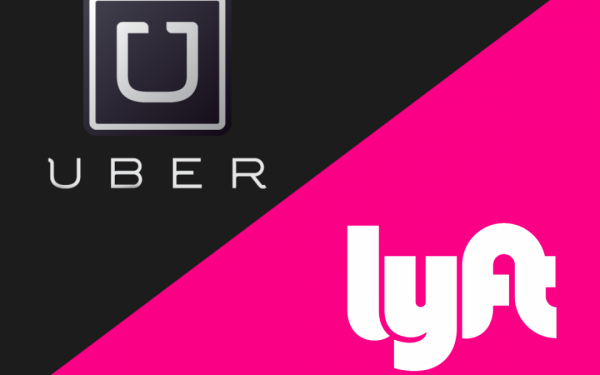
May 14. By Dave Vieser. The Northlake Airport Connector bus has been given a reprieve. With Mecklenburg County cutting the subsidy for the Airport Connector Express Route from Northlake Mall to the airport, the Charlotte Area Transit System (CATS) was considering eliminating the 14-mile route, which carries, among others, workers to and from CLT.
There was a hue and cry at a public hearing in April. “At the airport’s direction, CATS will continue the route until October 2018, while we work with airport employees to develop an alternate form of transportation between North Mecklenburg and the airport,” said CATS spokeswoman Krystel Green.
The alternative could be CATS vanpool service. 
No one’s precisely sure—there is not much data available, according to University of California, Davis research—but Uber and Lyft are having an impact on ridership.
The route has experienced a 7.7 percent decrease in ridership during the past year, while ridership on local buses in Charlotte and many transit systems across the country has dropped even more.
UC-Davis researchers say ride-hailing has resulted in a 6 percent reduction in the use of bus services. Nearly 30 percent of urban populations surveyed have adopted ride-hailing and use them on a regular basis, according to “Disruptive Transportation: The Adoption, Utilization, and Impacts of Ride-Hailing in the United States,” a UC-Davis study published in October of 2017.
CATS’ local bus ridership is down by over 15 percent over the past three years. During the first eight months of the current fiscal year alone, the decrease is 11 percent. Year-to-date ridership on the North Meck Rider Route is down 14 percent. Local officials in the Golden Crescent have often taken issue with some of the service elements offered by CATS, suggesting it doesn’t help promote more ridership.
CATS plans to release a draft report of Envision My Ride soon. Transit agencies like CATS rely on long-term trends to plan ahead; companies like Uber and Lyft are reluctant to share private research.
CATS has launched a pilot program with Lyft, the fastest-growing on-demand transportation service in the US, and Passport, the developer of CATSPass app. The partnership provides greater connectivity to jobs and education by providing affordable and reliable transportation with Lyft on the first and last mile of a person’s commute in areas where transit service may be too far away. The pilot program will be offered at two (2) LYNX stations and the area surrounding the stations.
For passengers needing a Lyft ride to or from the JW Clay/UNC Charlotte station or the Parkwood Station, CATS will provide a $4.00 contribution toward the Lyft fare.
In March, Huntersville Mayor John Anerella unsuccessfully tried to get CATS to divert study funding from a new north commuter rail route to instead bus system improvements. And Cornelius Mayor Woody Washam said some bus riders have to stand in the grass ”with no protection whatsoever waiting for their bus.”
The drop in ridership hasn’t been lost on transit officials. CATS Chief Executive John Lewis started a program last year called “Envision my Ride,” a redesign of the bus system that he hopes will restore an increase in ridership. However, many of the changes Lewis wants will focus more on cross-town routes in Charlotte, and will probably not have a major impact on routes or services in the North Mecklenburg area.
A few areas across the country, such as Seattle, have seen ridership increases. However their ridership increase was driven by a sharp increase in bus schedules, and that was paid for by increased taxes, an unattractive option for most communities.
CATS has received a 1/2 percent sales tax since 1998 to help fund their services. The tax was approved by voters 58 percent to 42 percent at that time. Meanwhile CATS is joining forces with the competition.
CATS has launched a pilot program with Lyft, the fastest-growing on-demand transportation service in the US, and Passport, the developer of CATSPass app. The partnership provides greater connectivity to jobs and education by providing affordable and reliable transportation with Lyft on the first and last mile of a person’s commute in areas where transit service may be too far away. The pilot program will be offered at two (2) LYNX stations and the area surrounding the stations.
For passengers needing a Lyft ride to or from the JW Clay/UNC Charlotte station or the Parkwood Station, CATS will provide a $4.00 contribution toward the Lyft fare.

Discussion
No comments yet.